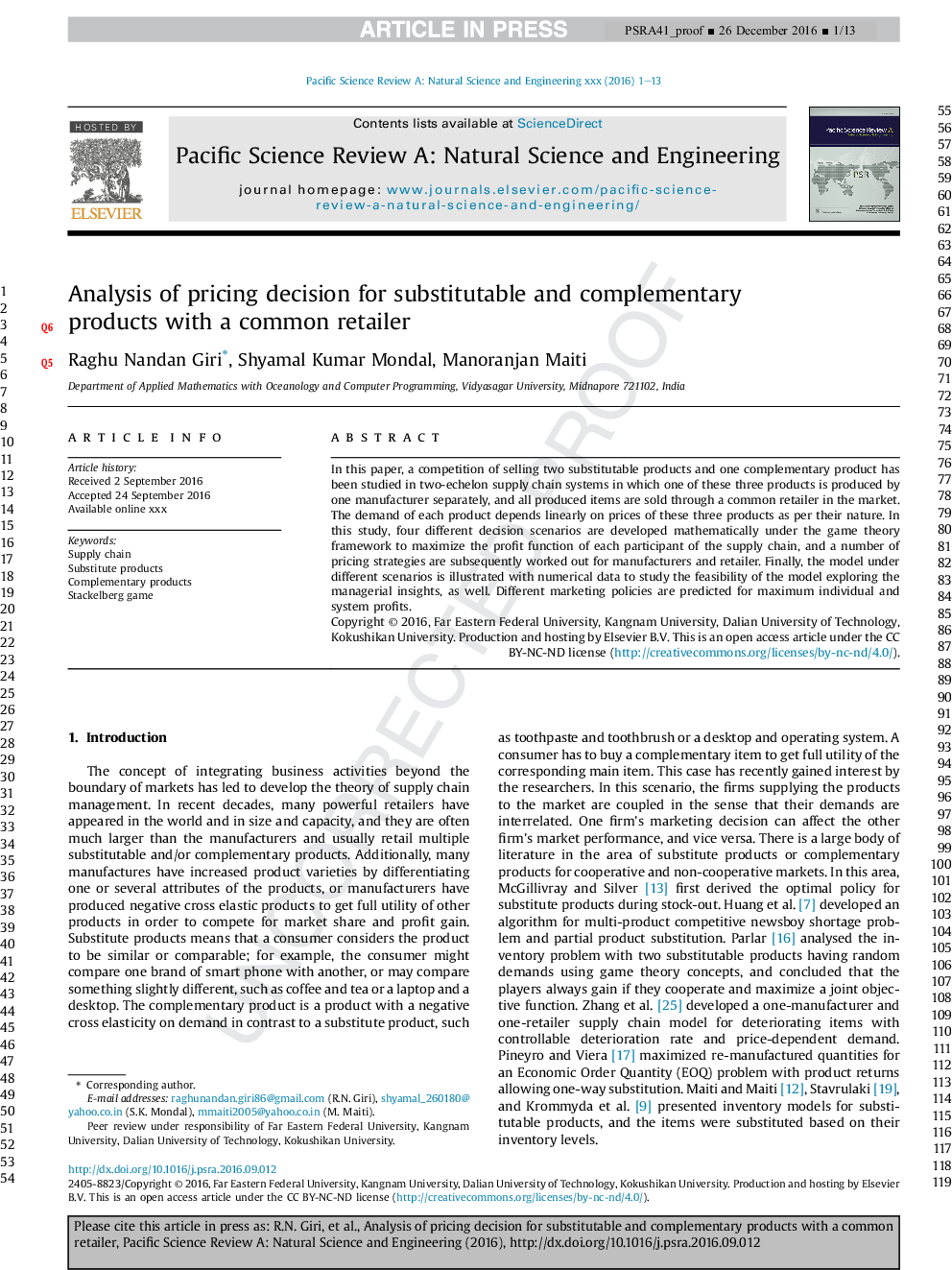| Article ID | Journal | Published Year | Pages | File Type |
|---|---|---|---|---|
| 6763509 | Pacific Science Review A: Natural Science and Engineering | 2016 | 13 Pages |
Abstract
In this paper, a competition of selling two substitutable products and one complementary product has been studied in two-echelon supply chain systems in which one of these three products is produced by one manufacturer separately, and all produced items are sold through a common retailer in the market. The demand of each product depends linearly on prices of these three products as per their nature. In this study, four different decision scenarios are developed mathematically under the game theory framework to maximize the profit function of each participant of the supply chain, and a number of pricing strategies are subsequently worked out for manufacturers and retailer. Finally, the model under different scenarios is illustrated with numerical data to study the feasibility of the model exploring the managerial insights, as well. Different marketing policies are predicted for maximum individual and system profits.
Related Topics
Physical Sciences and Engineering
Chemical Engineering
Bioengineering
Authors
Raghu Nandan Giri, Shyamal Kumar Mondal, Manoranjan Maiti,
